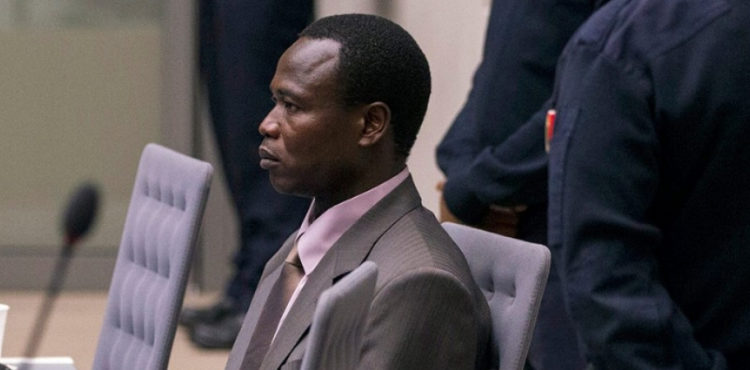By Susan Kendi
“Have you cleaned the backside of my mother?” Lord’s Resistance Army commander Joseph Kony asked on the radio.
He wanted to know if everything had been destroyed in an attack on a camp for internally displaced persons, a witness told the International Criminal Court, and when he received an affirmative response, the warlord said: “This is very good. You should have killed and finished all these people completely.”
Prosecutors at the ICC played a recording of the conversation between Kony and his henchmen Vincent Otti, Dominic Ongwen, Labongo, and a signaller.
Ongwen was reporting on an attack he led on Odek, in which he had confronted many soldiers but had recovered a PK gun, 34 magazines, 10 uniforms, 560 military bombs, 10 pairs of gumboots, killed nine enemy combatants and a large number of civilians. He had captured eight people, men and women.
Witness P-059, who is testifying in the war crimes and crimes against humanity trial of Ongwen, said the LRA’s communications were intercepted in the Gulu 4th Division Barracks of the Uganda People’s Defence Forces.
Kony tells Otti in one recording, “Look at Dominic, he does his work very well. Look, like the other day, he did his job quite well.”
Ongwen’s alias, Wai Wai, was taken from a Ugandan politician, and his call sign was One Mic, the witness told Judges Bertram Schmitt (presiding), Raul Pangalangan and Peter Kovacs at the ICC on January 30, 2017.
In another recording played in court, Kony announces promotions for Ongwen, Michael Odek, Okwum Odek and Vincent Otti, and asks the latter to make arrangements for celebrations.
In the fourth recording played to the court, the witness testified that Otti told Kony that he had heard on radio, that the civilians were supporting President Yoweri Museveni.
“Museveni has given guns to all civilians and so they had become LRA enemies, “ Otti told Kony. “If they don’t stop supporting Museveni, we will kill all civilians,” but Kony interjected, saying: “No, you can’t kill all civilians.”
LRA allegedly looted shops and stole, carrying their booty in Chinese-made bags known as Bag Freedom.
The extensive recording of LRA communications has raised questions about why the Ugandan government did not act decisively against the LRA if a code breaker had been cracking the rebel group’s communications for 17 years.
“I worked and slept in the same room (an office that was based at UPDF Barracks in Gulu, northern Uganda). I monitored and recorded the LRA communication,” the witness told the court.
The witness, who is testifying under a protected identity, said he is still working as a communication interceptor for Uganda’s Internal Security Organisation (ISO).
He described from photographs the office he used while intercepting LRA communication at UPDF Barracks in Gulu and the people working in Gulu when he arrived. They included Fred Ojuka, Oromcan Walter and Orach John.
ISO could intercept messages within a range of up to 1,000 kilometres, including those from South Sudan. “It was forbidden to interact with UPDF officers also intercepting LRA communication,” the witness said. The interception of LRA communication once helped to combat an LRA attack in Abim.
He told Judges Bertram Schmitt (presiding), Raul Pangalangan and Peter Kovacs that he underwent a basic military training course and also trained as a signaller to use the radio. He has been using the same radio equipment from 2000, he said, and described his working routine between 2002 and 2005. His schedule entailed monitoring, assessing the voice of LRA speakers, and intercepting the communication on radio from Gulu. He would make records in English and forward them to ISO headquarters.
“I am trained to know the codes that the LRA uses. Most times, the Tonfas would be designed in the control office and assigned to different commanders.
“Sometimes the Tonfas would be used for a long time and sometimes it would be changed. Once a Tonfas code was broken, the LRA created a more complex one,” he added, for the first time revealing that Tonfas was an acronym for ‘Time, Operator, Nicknames, Frequency, Address and Security’.
LRA communicated six times in a day: Early morning at 9 am,mid-morning at 11am, in the afternoon at 1 pm, in late afternoon at around 3 pm, in the early evening at 4pm and finally at 5pm. It was rare for them to communicate after 6 pm unless there was an ‘operation’.
The commanders who mainly featured on most LRA radio communication were Joseph Kony, Otti Vincent, Dominic Ongwen, Lakati and Okot Odhiambo.
“LRA commanders, their wives and their children were referred to as LRA families and would be assigned call signs,” the witness said.
The witness said he would make notes, then go through them to identify codes to translate, then make a record in logbooks that would be faxed to headquarters. Rough notes and logbooks would be stored in the office in Gulu, and when there was no more space, they would be sent to Kampala.
Asked by the prosecutor if he would ever included information he had not heard in the logbooks, the witness replied: “No. It would go against the code of conduct. I would decode the codes that I could and leave the ones I couldn’t as they are.
“Live communication was better than the recording. ISO would make most of the LRA communication,” the witness told the court.
Ongwen, a former LRA commander, has been charged with 70 counts of war crimes and crimes against humanity, which include enslavement, abduction of children, rape, torture and forced marriages among others. Ongwen himself was reportedly abducted at the age of 11 years as he was walking to Koro Abili Primary School.
The trial continues on Tuesday, January 31 before taking a two-week break.







